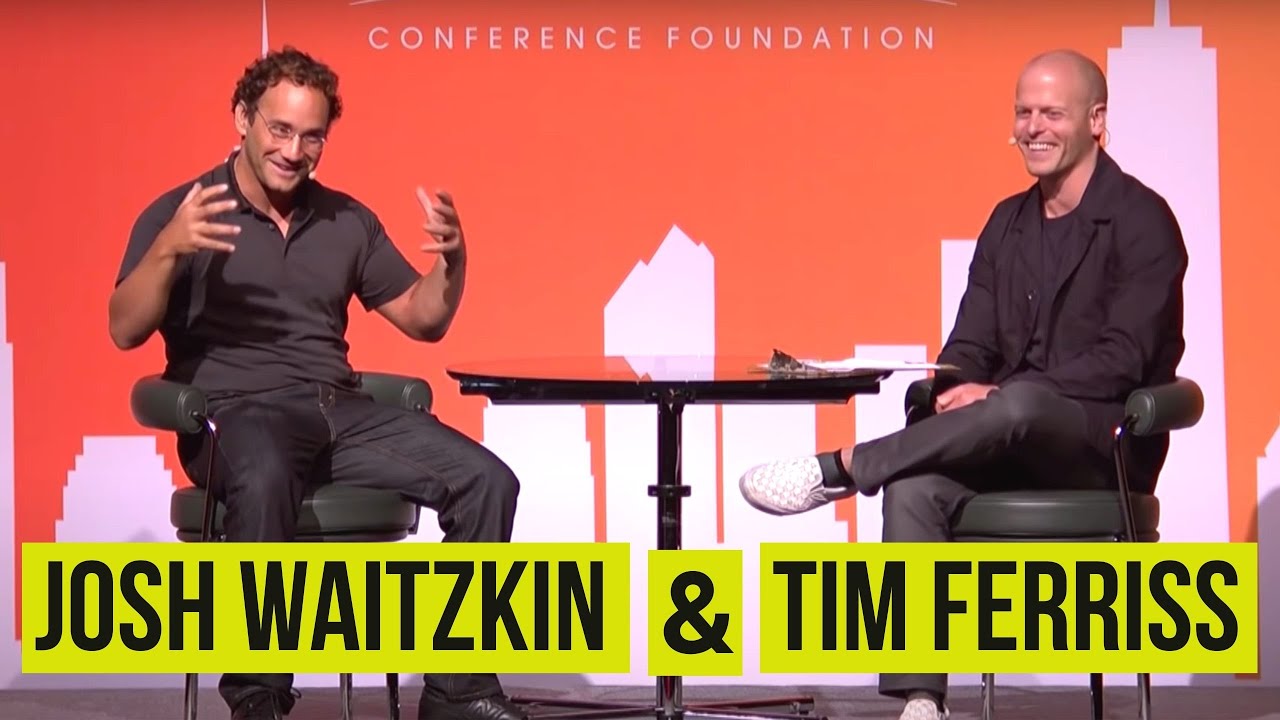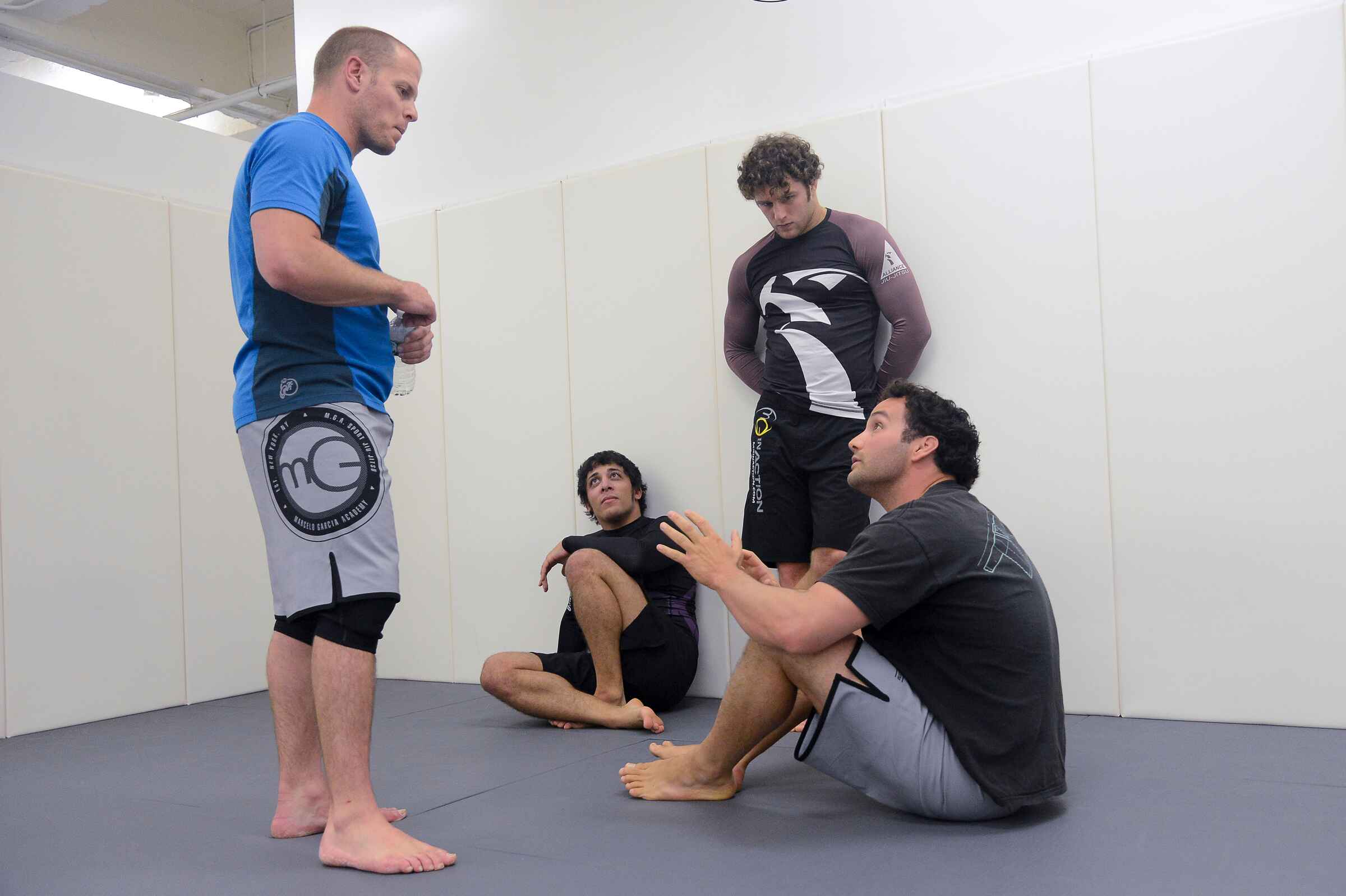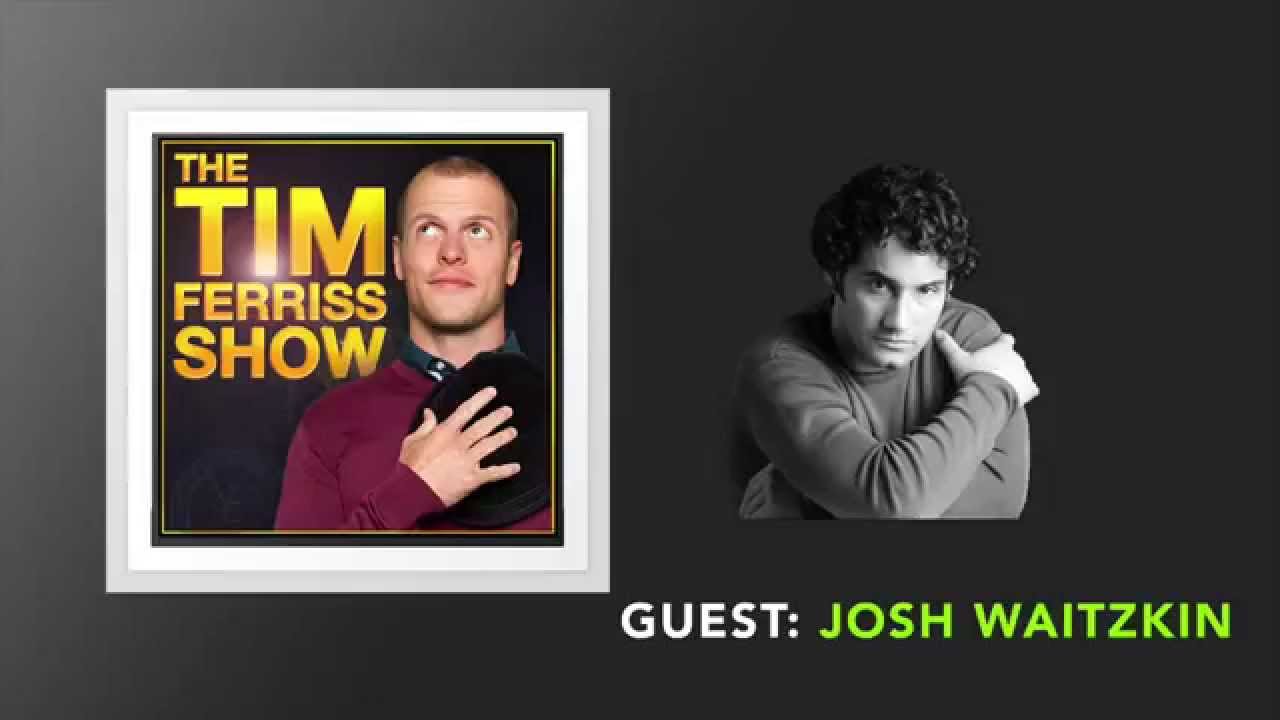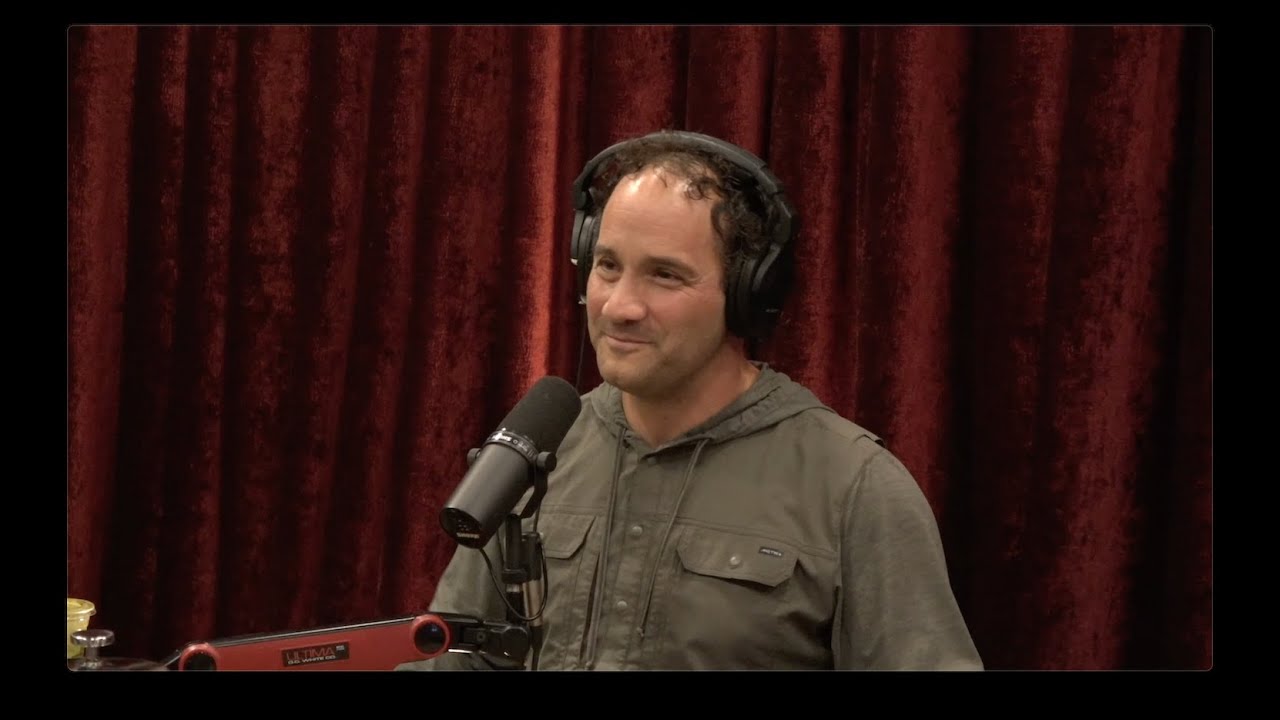
How to Cram 2 Months of Learning in 1 Day | Josh Waitzkin on the Tim Ferriss Show Podcast Summary
Josh Waitzkin shares powerful insights on how he compresses months of deliberate practice into single days through his systematic approach to learning, the MIQ method, and optimal day structuring.
1. The Accelerated Learning Approach
Waitzkin opened the conversation by explaining how he's managed to achieve what seems impossible: cramming two months of learning into a single day through his foiling practice (a cutting-edge form of surfing where most of the board is elevated above the water).
"It feels physiologically like between one and two months of training per session. Afterwards, I feel like I have to lie in a dark room with my eyes closed for 10, 15 minutes, just to process. The brain feels like it was plugged into The Matrix; it's really intense."
What makes this possible? Waitzkin has designed a training system using an eFoil (an electronic foilboard) that allows him to dramatically increase his "time in the zone" and implement deliberate practice in unpredictable environments:
"What's been interesting is opposed to having two to four minutes of wave time a session surfing, I'll have 54 minutes or so of wave time at faster speeds. What's interesting is it also opens up the ability to do deliberate practice in surfing."
This creates an opportunity for true deliberate practice in an otherwise unpredictable sport.
2. The Core Learning Principles
Throughout the interview, Waitzkin revealed several foundational principles that underpin his accelerated learning approach:
2.1. The Importance of Finishing Strong
Waitzkin shared a story about skiing with Olympic champion Billy Kidd, who asked him about the most important turns of a ski run. The answer? The last three turns before getting on the lift.
"He talks about the last three turns before you get on the lift. Which is where most people are sloppy, most people lift up, their body mechanic relaxes. But the thing is, the last returns are what you're going to be internalizing unconsciously on the lift ride up."
This principle applies across disciplines—always finish strong, as your last repetitions or attempts are what get internalized most deeply during your rest periods.
2.2. Making Smaller Circles
One of Waitzkin's core concepts is "making smaller circles"—starting with big motions and gradually refining them into more precise, efficient movements:
"I use this term: making smaller circles, that initially when we do something, we do it in this big way, and then we can refine it and make the circles tighter and tighter and tighter."
This principle of incremental refinement allows for deeper mastery and increased efficiency over time.
2.3. Connecting Conscious and Unconscious Mind
Much of Waitzkin's approach focuses on creating systematic ways to harness unconscious learning:
"Because what you're doing that way is you're systematically opening the channel between the conscious and the unconscious mind. That's something that is something you can do it systematically, day in and day out rhythmically."
3. The Most Important Question (MIQ) Method
Perhaps the most actionable tool Waitzkin shared was his MIQ method—a daily practice he's been using for decades:
"One of the things that I have everyone do—and that I've been doing my whole life—is ending my day thinking about the most important question in what I do. Then waking up in the morning, first thing, pre-input, and brainstorming on it."
This approach, which he learned from his father and has seen referenced in Hemingway's writing process, creates a systematic way to focus your mind on what truly matters and engage your unconscious processing power.
3.1. MIQ Gap Analysis
Waitzkin further developed this into the MIQ Gap Analysis for team environments:
"If you have the system I call MIQ Gap Analysis -- where everybody is doing this most important question training, initially one rep, but then multiple reps of the day -- there's transparency throughout the team."
The system works as follows:
- Everyone identifies their most important questions
- They practice this multiple times per day
- They periodically review what they thought the MIQ was versus what it turned out to be
- The gaps between those perspectives become areas for deliberate practice and improvement
4. Optimizing Your Day for Peak Performance
4.1. Proactive vs. Reactive Day Structure
Waitzkin emphasized the importance of a proactive day architecture versus a reactive one:
"I think that a proactive day architecture versus a reactive one is hugely important. I think most people will have lots of meetings scheduled and then maybe they'll try to jam thinking in between the meetings. So they'll have like two minutes of thinking time in between, which is, from my perspective, disastrous because people, their brilliance comes from thinking."
Instead, he recommends blocking out dedicated thinking time first and scheduling meetings around those blocks.
4.2. Aligning Peak Energy with Creative Work
He also stressed the importance of aligning your peak energy periods with your most creative work:
"And alignment of peak energy periods with the creativity work, thinking time is hugely important. Usually, it's the reverse, people will do their thinking on the walk back from lunch when they're a little bit lethargic as opposed to doing their thing first, when they wake up in the morning when their energy and their creativity is most intense."
Most people can intuitively identify their peak energy periods—the key is to protect those times for your most important creative work.
5. The Undulation Between Intensity and Relaxation
A fascinating insight from Waitzkin's martial arts background is the importance of undulating between deep relaxation and full intensity, rather than maintaining a constant "simmering six" level of effort:
"The greatest fighters are super relaxed when they're not fighting. But when they're in the battle, you wouldn't believe the intensity."
He observes that many high-performers, especially in demanding industries, operate at a constant medium intensity—around a "simmering six" on a scale of ten:
"Most people in high-stress, decision-making industries are always operating at this kind of simmering six, or four, as opposed to the undulation between just deep relaxation and being at a 10."
This prevents them from ever experiencing true relaxation or reaching their full potential intensity:
"Being at a 10 is like millions of times better than being at a 6. It's just in a different universe. Same as being all-in on a discipline is millions of times more intense than being 98 percent or 99 percent."
6. Using Technology and Biomarkers Wisely
While Waitzkin tracks various biomarkers with his coaching clients, he places particular emphasis on heart rate variability (HRV) as a tool for performance:
"What I've come to focus on most deeply is heart rate variability. I have a brilliant HRV specialist, Dr. Leah Lagos on my team who works really closely with all of my teams."
And explains its benefits:
"HRV is a really powerful way of training someone to get into a state of deep concentration, relax, deep concentration away from stress very quickly."
6.1. Using Technology to Develop Intuition
His approach to technology is to use it as a training tool for developing internal awareness rather than creating dependency:
"The way I personally relate to biofeedback or any kind of technological tool is to use it to train my own somatic ability to feel where I am. I don't personally want people to become dependent on technology. I want them to use technology to develop the ability to feel."
6.2. Trigger Work for Peak Performance
This philosophy extends to his trigger work for entering peak performance states quickly:
"Trigger work would be essentially using something like a song, like Lose Yourself, Eminem song. One thing I started doing decades ago would be getting myself into a peak performance state and then attaching a trigger to it, like a song or a scent."
He describes how he's used specific songs or scents as triggers, attaching them to peak performance states so that eventually he could enter those states with just a breath.
7. Creating Space for Deep Thinking
Some of Waitzkin's most powerful insights came from his move from New York City to a remote location in Latin America, where he's experienced the power of empty space:
"This has been a principle that I've cultivated for many years, that I feel like I've only begun to see the potency of in the past couple of years, since I've experienced the power of the empty space."
7.1. Getting Away from Group Think
This move allows him to escape the common thought patterns that limit creativity:
"So much of what we're trying to do as idea generators is get away from the thought constructs, the group think, the group biases where everyone is clustered. It's really interesting to get away from it all."
7.2. Opening Your Perceptual Pores
This physical distance has allowed him to open his perceptual pores in new ways:
"It's amazing how much I feel here that I didn't feel before. Because living in the city, you have to close down a lot of your pores because of the ambulance sounds, the technology, just the constant noise."
7.3. Seeing the Water You Swim In
He references David Foster Wallace's famous "This is Water" speech:
"It's like that idea, that great David Foster Wallace discussion around, This is Water, built around the metaphor of a fish swimming in water doesn't know what water is. It's very important to see what our water is."
This emphasizes the importance of recognizing the background context that shapes our thinking without our awareness.
7.4. The Art of Saying No
For those who can't relocate to the jungle, Waitzkin suggests that the art of saying no is essential:
"Well, the art of saying no, which you and I have spoken about a lot, is a really important one to take on."
Creating boundaries and empty space in your schedule can provide similar benefits, as can regular meditation practice.
8. The Ultimate Goal: Unobstructed Self-Expression
Toward the end of the conversation, Waitzkin revealed that his ultimate goal is unobstructed self-expression:
"From my perspective, the goal is unobstructed self-expression. First, we have to understand what self-expression is and who we are as a learner. We have to embrace every little element of our funk and build around it."
8.1. Understanding Your Learning Style
This requires deep understanding of your learning style and personal preferences:
"There's so many frames in order to understand who we are. Are we a visual kinesthetic or auditory processor? Most people don't even ask this question."
8.2. Being All-In on Your Passion
When you achieve this alignment between your true self and your work, you unlock the ability to be completely all-in on your passion:
"I think that a big part of being all in on something and falling in love with something so deeply that you're eating it, you're breathing it, you're sleeping it, you wake up in the morning wanting to do it, you want to train at it, being just on fire, stoked out of your mind on the thing, is feeling like you're expressing yourself through what you're doing."
Conclusion
Josh Waitzkin's approach to compressing months of learning into single days isn't about shortcuts—it's about designing deliberate practice systems, aligning your day with your natural rhythms, connecting your conscious and unconscious mind, and creating space for deep focus and reflection.
By implementing even a few of these principles—the MIQ method, proactive day structuring, making smaller circles, or practicing the undulation between relaxation and intensity—you can dramatically accelerate your learning and performance in any field.
As Tim Ferriss noted in closing, Waitzkin has a rare gift for "putting the snow globe down long enough so that you can see through it"—allowing us to see past the constant swirl of activity and focus on what truly matters.
Applying These Principles with MIQ Journal
The MIQ method described by Waitzkin in this podcast is one of the core principles behind MIQ Journal. By implementing this evening-to-morning question practice, you can begin to systematically engage your unconscious mind and accelerate your learning and insight generation.
- Listen to the full Tim Ferriss podcast episode with Josh Waitzkin here
- Explore Josh Waitzkin's book The Art of Learning for more insights into his approach to mastery
- Start implementing the MIQ method in your own life with MIQ Journal
Transform Your Thinking with MIQ Journal
Join a tribe of professionals who are unlocking deeper insights and better decision-making through the power of evening questions and morning reflection.
Recommended Articles

Explore Josh Waitzkin's profound insights on flow states, near-death experiences, training methodologies, and cultivating intuition from his second conversation with Tim Ferriss.
Read more →
Discover Josh Waitzkin's profound insights on mastery, learning, and performance from his conversation with Tim Ferriss, including the MIQ method and principles for excellence across disciplines.
Read more →
Explore Josh Waitzkin's profound insights from his Joe Rogan interview on mastery, learning, and personal growth across multiple disciplines.
Read more →